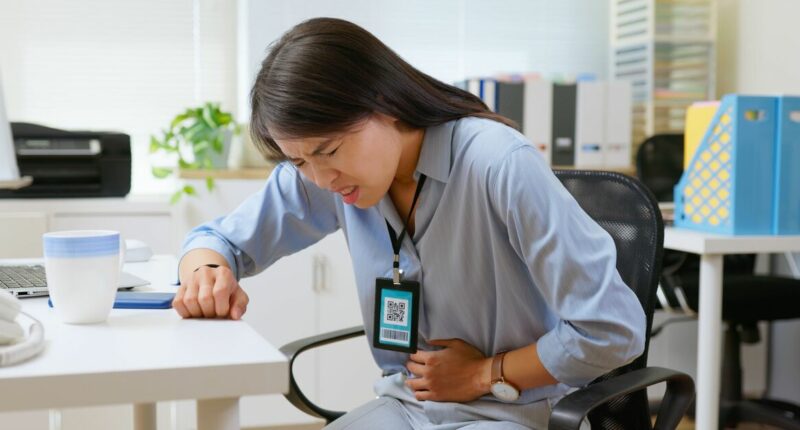Share this @internewscast.com
Thousands of people are calling on the Government to guarantee paid time off every month for those with a debilitating condition that affects around 1.5 million in the UK. A new petition has been started asking for statutory menstrual leave for people with endometriosis and adenomyosis.
More specifically, it demands up to three days of paid menstrual leave per month for people with a valid medical diagnosis. According to the latest data, around one in 10 women in the UK suffer with endometriosis, a painful condition where cells similar to those in the lining of the womb grow in other parts of the body.
Adenomyosis is an often-linked condition, where the lining of the womb starts growing into the muscle in the wall of the womb. Both can lead to symptoms such as pelvic pain, bloating, pain during sex, heavy bleeding, and extreme fatigue.
The calls come after Portugal introduced a new law granting employees experiencing severe menstrual pain due to endometriosis or adenomyosis up to three days of paid leave per month.
In the petition, campaigners said: “We call on the UK Government to introduce statutory paid menstrual leave of up to three days per month for people with conditions such as endometriosis and adenomyosis, following the model introduced in Portugal in 2025.
“We urge the UK Government to implement a statutory menstrual leave policy similar to the one recently passed in Portugal.” As part of the request, the terms included:
- Providing up to three days of paid menstrual leave per month for individuals with a valid medical diagnosis
- Requiring only a single annual medical certificate confirming the condition
- Ensuring full employment protections, including no loss of pay, benefits or seniority
- Guaranteeing confidentiality and non-discrimination in the workplace
At the time of reporting, the petition has garnered more than 3,450 signatures. If it reaches 10,000 signatures, the Government will provide a written response.
At 100,000 signatures, the petition will be considered for debate in Parliament.
Find out about the symptoms you need to watch out for and get health advice with our free health newsletter from the Daily Express
How prevalent is endometriosis?
While it is thought to affect around one in 10 women, endometriosis is severely underdiagnosed. Data from the Office for National Statistics (ONS) shows that within the period between 2011 and 2021, only around two percent of women of reproductive age actually received an endometriosis diagnosis.
ONS figures also indicated that the average age at which endometriosis is diagnosed stands at 35, often several years after initial symptoms emerge.
“Using 2011 Census data linked to hospital records from 2011 to 2021, we estimate the prevalence of an endometriosis diagnosis to be approximately two percent of reproductive age women in our linked population, with an average age at diagnosis of 35 years; this is likely an underestimate of the true prevalence, as many women will not have a diagnosis,” the ONS remarked.
And the charity, Endometriosis UK states that endometriosis is the second most common gynaecological condition in the UK. However, it takes an average of eight years and 10 months from the first GP visit to get a diagnosis.
Symptoms
According to the NHS, symptoms happen when patches of endometriosis break down and bleed during your period but cannot leave your body.
You might have some symptoms during your period, such as:
- Severe period pain, that stops you from doing your normal activities
- Heavy periods, where you need to change your pads or tampons every one to two hours, or you may bleed through to your clothes.
- Pain when you poo or pee
You can have other symptoms at any time in your menstrual cycle, such as:
- Pain in your lower tummy and back (pelvic area)
- Pain during or after sex
- Extreme tiredness (fatigue)
- Pain or bleeding in other areas, such as in the chest, which may cause shortness of breath and coughing up blood
“You may also have difficulty getting pregnant and have low mood or anxiety,” the NHS adds. Adenomyosis can cause similar symptoms, although some people with adenomyosis have no symptoms.
If you experience any symptoms you should speak to your GP. Treatment options can include painkillers and hormone therapies.
But if other treatments are not working or you have lots of endometriosis, you may be offered surgery. If you have severe adenomyosis you may be offered be a hysterectomy, or surgery to remove the lining of your womb.
To sign the petition or find out more, visit the parliamentary petition website here.












